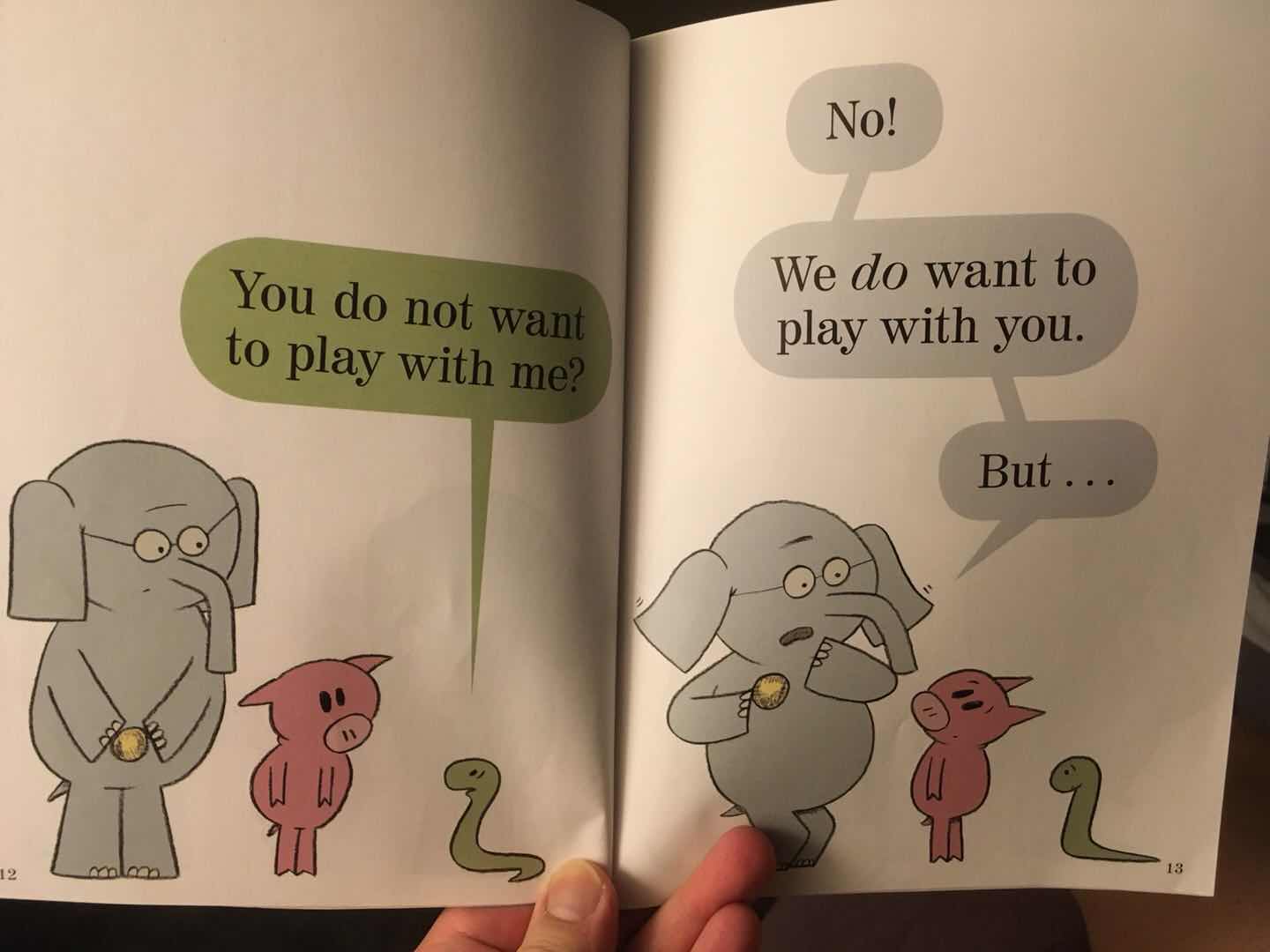Conversational English often makes use of a negative that negativizes an entire implied negative utterance, and is not just a Yes or No answer in response to the verb. This is a kind of double negative at utterance level, and is perfectly grammatical and used for effect.
- “I don’t dislike |not receiving criticism of my book|.” which really means “I’m glad no one criticized it".
- "He does not dispute |not agreeing with you|", which means: He does not disagree that he does not agree with you.
Question: "You do not want to play with me?"
Answer: No! [It is not that I do not want to play with you.=implied negative utterance]
The answer continues on the next line: We do want to play with you.
If the Answer in the kid's book had been: "Yes", it would mean: Yes, that's right. I do not want to play with you.
The question being asked is not a simple yes-no binary one:
Do you want to play with me? Possible answers: Yes, I do. No, I don't. [that is: [Y] or [N] applies to play.]
The question being asked is uttered through rising intonation of an
utterance in the negative and implies an entire implied sentence in
the response.
- You do not want to play with me?
Possible answers: No, [it is not that I do not want to play with you. I do want to play with you].
Yes, [that is right. I do not want to play with you].
The word no refers to an implied utterance. There is no other possible interpretation here and in conversation, these implied sentences utterances are very common.
Question: "You do not want to go to the movies me?"
The yes or no to this question refutes or accepts the entire implication.
And I am sure that someone here can write this out in better logical or philosophical notation with brackets:
"Do you want to play?" A simple binary question
Y = [want to play]
N= [not want to play]
VERSUS
"You don't want to play?" A complex binary question with implied
refutation of proposition.
N=No [It is not true |that I do not want
to play|]. Double negative of a statement
Y=Yes [It is true |that I do not want to
play|]
[Y] or [N] here applies to "It is true that" or "It is not true that"
followed in both cases by "I do not want to play".
And the amazing part is that very young children get it until they are browbeaten by adults. There is logic at play here, not just grammar. :)

